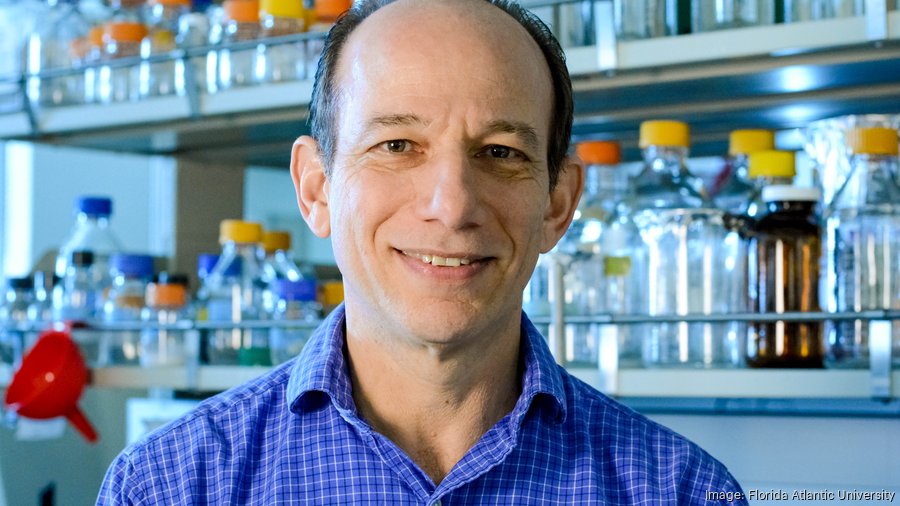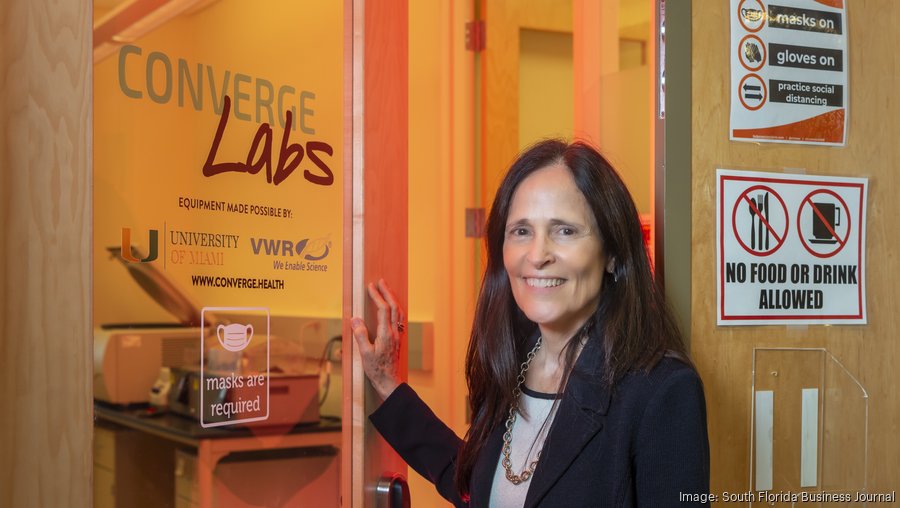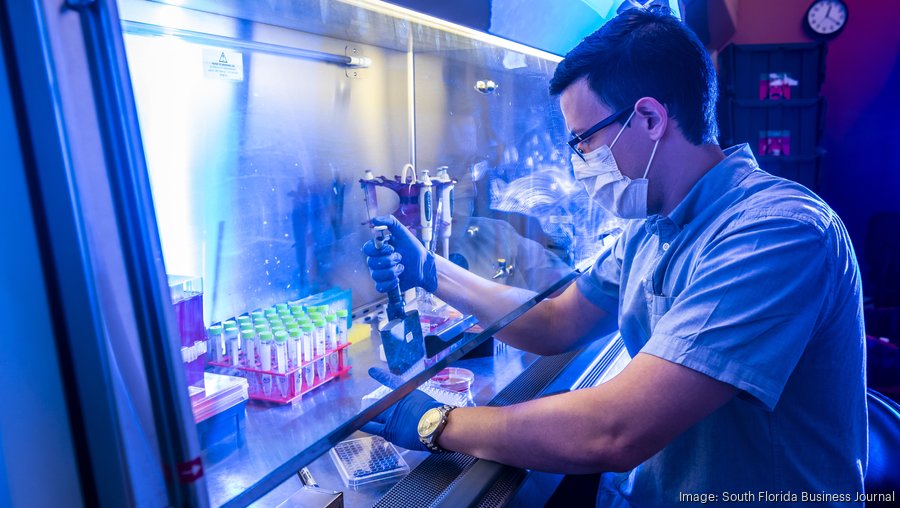The push to make South Florida a hub for cancer research companies has been ongoing for nearly two decades, and major signs of progress are surfacing.
Shaping the area into fertile ground for cancer research startups serves multiple purposes: fostering companies that work on innovative treatments and vaccines to save lives, attracting significant federal research grants and venture capital funding, and creating much-needed high-paying jobs.
Efforts to grow South Florida as a cancer research hub have started to bear fruit. And it all started when then-Gov. Jeb Bush lured the Scripps Research Institute to Palm Beach County in 2003.
He offered Scripps a generous public incentive package, hoping it would jump-start his vision of growing the state as a biotechnology powerhouse, with cancer research a key focus. Scripps did attract accomplished scientists to the area, but the millions of square feet of commercial biotech space has yet to materialize.
Still, South Florida is making strides in establishing its reputation as a growing cancer research hub. This, despite the challenges of finding adequate space for labs and continued difficulty in raising startup capital.
Finding incubator space in a research lab has been a hurdle for many startup cancer companies, said Gregg B. Fields, executive director of Florida Atlantic University’s Institute for Human Health and Disease Intervention in Jupiter. Early-stage companies need shared research space because they rarely have the capital to purchase expensive equipment. Incubators can also provide staff to help with business plans and the regulatory process, areas where scientists often need assistance.

FAU offers companies shared research space on its Jupiter campus as long as the companies form a relationship with the university, such as hiring interns, Fields said. Many of these companies focus on cancer research. The goal is for them to scale and find their own local space.
“I see things moving in a very positive direction recently,” he said. “The investment to grow biotech here has to be in incubators for [hosting] startup companies. There has been a limited amount of them, but that’s changing.”
Beacon Pharmaceuticals, a subsidiary of Beacon Capital, received approval from Jupiter to build a 159,000-square-foot research and manufacturing facility that it bills as an accelerator for startup life science companies, with cancer a major focus. Beacon Capital principal Nancy Torres Kaufman said it will guide early-stage companies through financing, regulatory approvals, legal issues and businesses strategy. There will also be manufacturing facilities so the companies can produce their products on-site.
“The idea of our accelerator is the companies are given an opportunity to grow up with us,” Torres Kaufman said. “We will provide a holistic suite of services that will allow the scientists to focus on the research.”
Beacon Pharmaceuticals plans to break ground by the end of the first quarter of 2021. It should take at least 14 months to complete. In the meantime, it’s looking for a smaller research facility to host startups, she said.
For research startups further south, the University of Miami opened a shared lab for early-stage companies in the Converge Miami building near its medical campus. Dr. Norma Kenyon, vice provost for innovation and chief innovation officer at the Miller School of Medicine, said it will soon expand from eight to 12 benches. It’s a month-to-month lease, so companies don’t have to make a big capital commitment.
Before the shared space opened, early-stage cancer research companies had few places to go in Miami, and many of them left the state, Kenyon said. Now, some companies are leaving the Northeast and coming to UM’s labs.
Leasing a shared lab is much less expensive than leasing a lab for an individual company, and the companies don’t have to buy equipment or wait for their lab to be constructed.
“Biomedical research is expensive,” Kenyon said. “You can’t afford to waste any time. You need to go in and get started.”

One of the tenants in UM’s shared space is StemSynergy, a discovery-stage cancer research company. President Tony Capobianco, also a professor with the Miller School, said he needs independent space because he cannot use UM's labs for his business. The shared lab is relatively affordable.
“What’s more important is the financial support from the community,” he said. “Whether it’s seed money or venture capital groups, the biggest difference between Boston, San Diego or San Francisco, and Miami is access to capital. It’s not that it’s not here; it’s just harder to get ahold of for biotech.”
Venture capital is also top of mind for Gary Margules, VP of the office of research and technology transfer at Nova Southeastern University. For NSU, the lack of lab space is not an issue. Its new Center for Collaborative Research building in Davie has two full floors with available labs. The labs could host cancer research developed at NSU, or by outside companies. Tenants would have access to NSU's research equipment.
The university is also building the Alan B. Levan NSU Broward Center of Innovation, which will help early-stage companies, including cancer research firms, formulate business plans and raise capital.
“We hope the corporate mentors can help the young entrepreneurs get connected and develop good business plans that are fundable,” Margules said.
Florida International University hasn't opened an incubator space for medical research. Emily Gresham, assistant VP for research, innovation and economic development, said the biggest challenge cancer researchers face is accessing patients for trials.
“The incubator facilities will come into play once they reach a certain threshold where the faculty members have advanced their research far enough,” she said.
Robert Hacker, director of the StartUP FIU innovation hub, is focused on helping the university’s cancer researchers secure more federal grants for their work. That will help them attract private funding to advance their research.
“Because we are comparatively new at this, [funding] corporations in Florida and the Southeast U.S. don’t know we have as robust a research function as we have,” Hacker said.
Sign up here for the Business Journal’s free morning and afternoon daily newsletters to receive the latest business news impacting South Florida. For more business intelligence, follow us on LinkedIn, Facebook, Twitter and Instagram.





